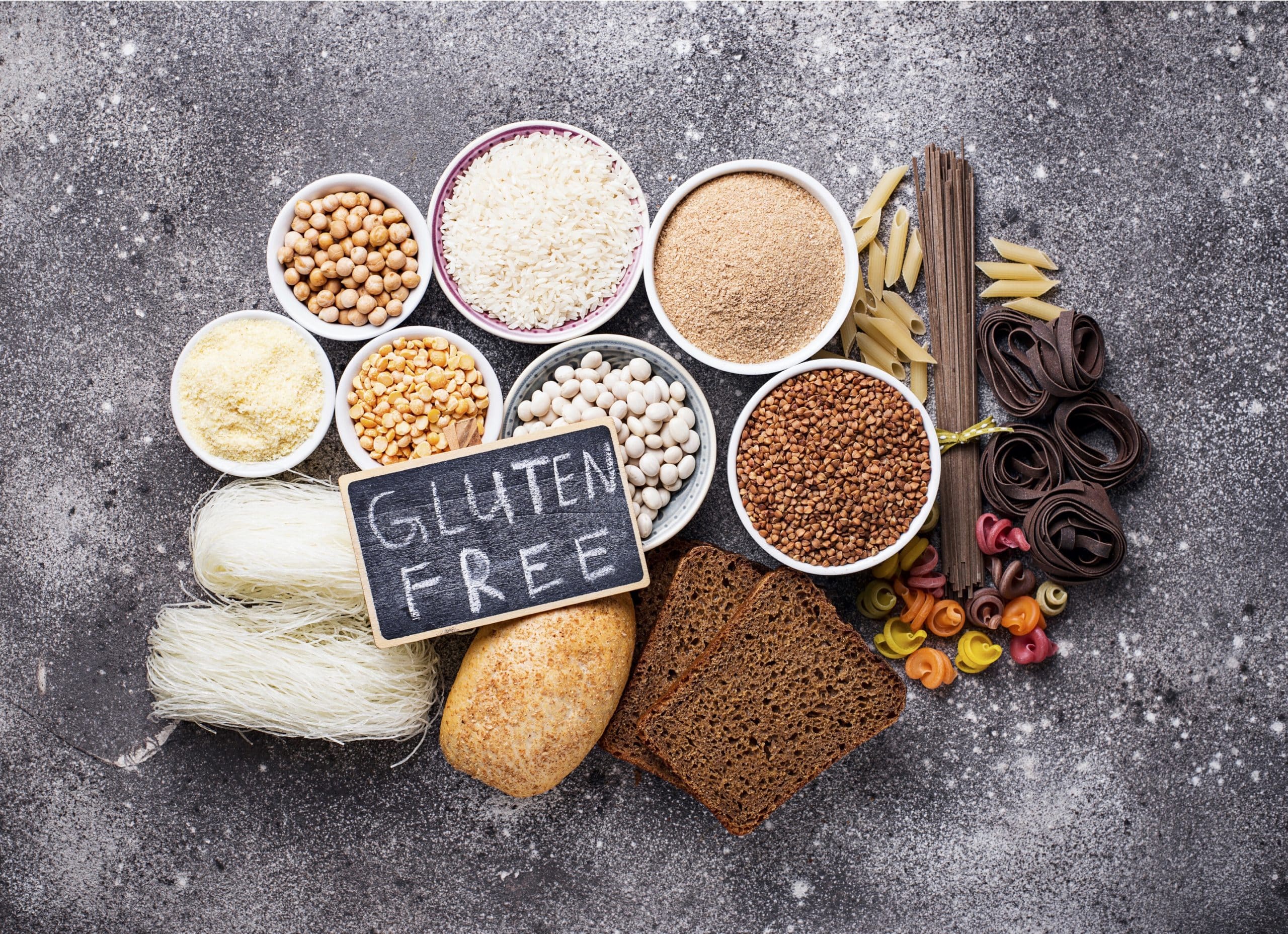
Why choose gluten free?
Why choose gluten free?
For people with coeliac disease and/or dermatitis herpetiformis, a gluten free diet is essential; coeliac disease affects approximately 1 in every 100 people in the UK.
However, there are digestive conditions such as irritable bowel syndrome and gluten sensitivity in which reducing or avoiding gluten may help people alleviate symptoms.
Other people may follow a gluten free diet due to media or as a trend in which it is perceived as being healthier or helpful for weight loss. Weight loss by eating a gluten free diet is more likely due to people eating less processed foods or portions of starchy foods. Therefore, cutting the calories rather than reducing or avoiding gluten itself.
Restricting your diet unnecessarily may have undesirable effects on your health.
Gluten Free Products
For people with a medical diagnosis of coeliac disease, gluten free staple foods can be obtained through a prescription and are under the care of a healthcare professional.
However, if you go gluten-free by choice, buying special gluten free products can be expensive and unnecessary. Interestingly the launch of gluten free snack bars has more than doubled over the last couple of years in the UK. Ironically most people who buy gluten free products do not have coeliac disease.
Some gluten free products are not enriched with nutrients, such as folic acid (B vitamin) which are added to wheat flours and many contain extra sugar, salt and overall calories to compensate for the taste and texture compared with their gluten containing counterparts.
Which foods contain gluten?
Gluten is a protein found in wheat, rye and barley and their counterparts, such as spelt. Oats, although they are naturally gluten free, can be contaminated with wheat during processing unless they are guaranteed to be gluten free.
To avoid these completely can be a challenge because wheat particularly is added to many processed foods to help with their texture and taste. For example, durum flour, Triticale (a cross between wheat and rye) and modified wheat starch.
Examples of processed foods that typically have wheat added unless otherwise stated, include readymade meals, sausages, soups, dressings, gravy and sauces.
Obvious sources include pasta, bread, cakes, biscuits, pizza and pastries.
Gluten Free Alterative Grains
There are a number of grains and foods from the starchy food group (one of the main food groups) that are naturally gluten free and should be included in the diet if one omits gluten containing foods. Whole grains provide a good source of B-vitamins, minerals and fibre.
Including whole grain foods, as part of a healthy diet, is associated with lowering the risk of chronic conditions, such as, heart disease, type 2 diabetes and some types of cancer. Eating more fibre can also help satiety and as a consequence, aid weight management.
Grains and other starchy foods that are naturally gluten free include:
|
Amaranth |
Arrowroot | Buckwheat | Corn |
|
Gluten-free flours (corn, rice, potato) |
Millet |
Quinoa |
Rice |
| Sorghum | Tapioca | Teff |
Potatoes |
Whether you are on a gluten-free diet or not, eating a variety of whole grains is healthy as a part of a balanced diet.
Naturally Gluten Free Foods
Other than gluten free grains, there are many naturally gluten free foods from the other main food groups that should be included as part of a balanced healthy diet. These include:
Fruit and Vegetables
- Fruit and vegetables are a vital and rich source of vitamins, minerals, antioxidants and fibre
- This food group should be the largest part of your diet
- Include at least five portions of different types and colours of fruit and vegetables a day
- Aim for seasonal, fresh or frozen when possible
- Varied fruit and veg will provide a diverse source of nutrients
Meat, fish, eggs, nuts, seeds and pulses (beans, chickpeas and lentils)
- Rich source of protein essential for growth and repair
- A good source of vitamins and minerals, such as iron, zinc and B vitamins
- Naturally gluten free but processed choices may contain gluten e.g. fish in breadcrumbs or chicken nuggets
Milk and dairy foods (yoghurt, cheese and dairy alternatives)
- A good source of protein and calcium playing an important role in bone health
- Choose plain low-fat varieties and include a couple of portions a day to help meet your calcium requirement
- If you choose dairy alternatives, check that they are enriched with calcium
- Check the ingredients of yoghurt, processed cheeses and oat milk to ensure these are gluten free
Foods containing fat and/or sugar
- Not a main food group – fats can be found in the other four main food groups
- Some fat is needed in the diet, but you do not need to consume highly processed foods for a source of fat
- Sugary foods and drinks can be high in empty calories, with little other nutrient value
- Processed foods more likely to contain added ingredients or contaminated with other gluten containing foods
Summary
For some diagnosed medical conditions, a gluten free diet may be essential. If you choose to follow a gluten free diet for personal reasons, include naturally gluten free whole grains or other starchy foods as part of a balanced diet. There is no need to buy special gluten free products which are often more expensive. However, if you feel that you have a problem with gluten it is important to see a qualified healthcare professional as your symptoms may also be a reaction to something other than gluten in your diet.
There is no need to waste your money on specialised products, whether you need to avoid certain foods or not. Check out these 21 healthy and cheap food choices to fill your trolley with next time you go shopping.


